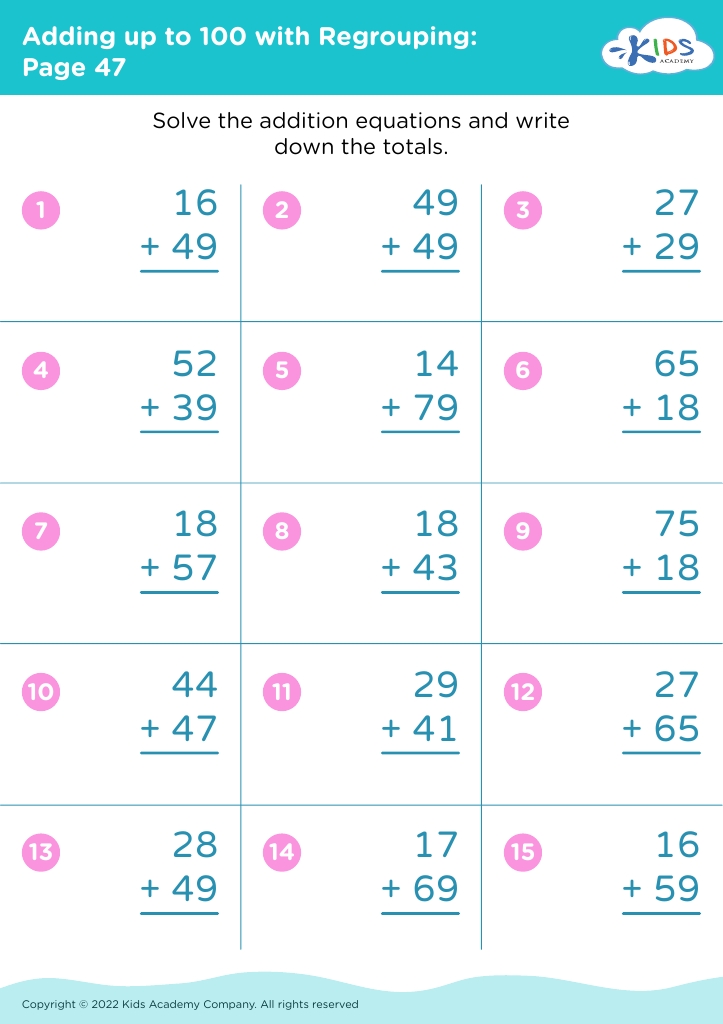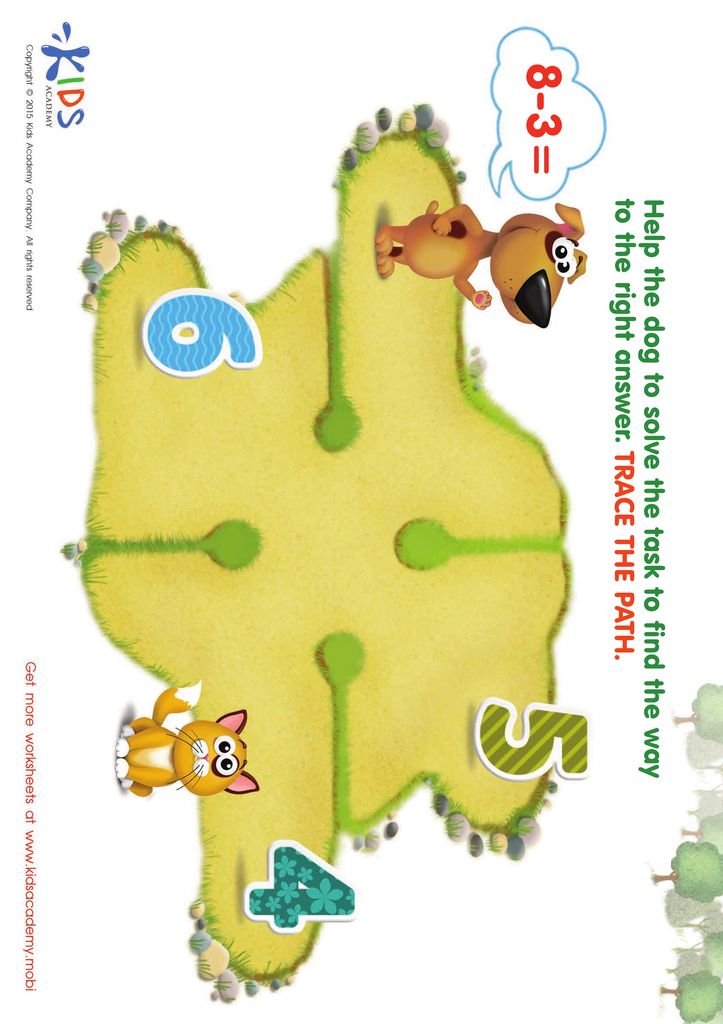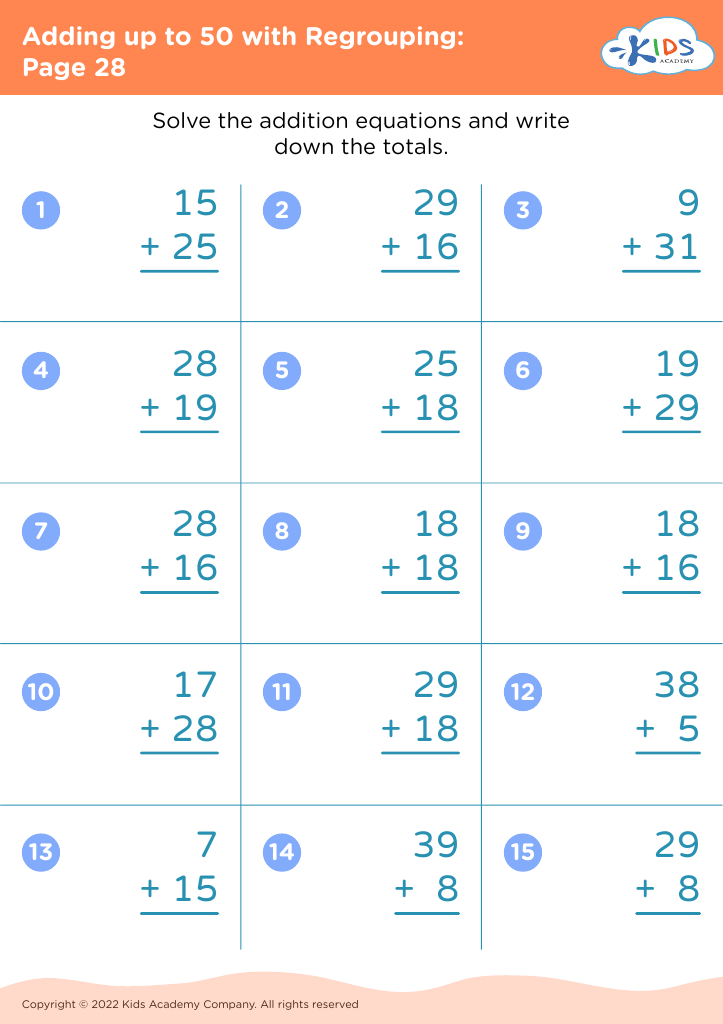Subtraction skills Addition & Subtraction Worksheets for Ages 5-9
27 filtered results
-
From - To
Empower your child's math journey with our Subtraction Skills Addition & Subtraction Worksheets, tailored for children aged 5-9. These engaging worksheets are designed to build a strong foundation in subtraction, reinforcing essential math skills. Through fun activities and age-appropriate challenges, kids will develop their ability to subtract with confidence and ease. Perfect for home or classroom use, our worksheets support their learning and help them thrive. Encourage your young learner to practice and excel in subtraction, ensuring they stay ahead in math proficiency. Download and start nurturing their love for mathematics today!
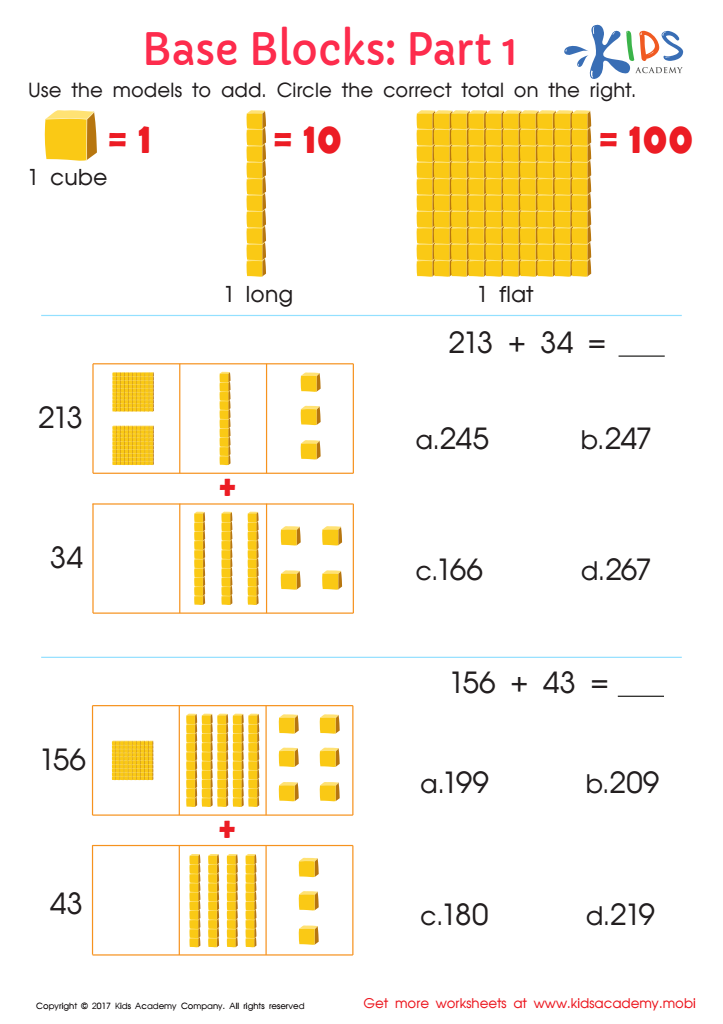

Base Ten Blocks Worksheet: Part 1
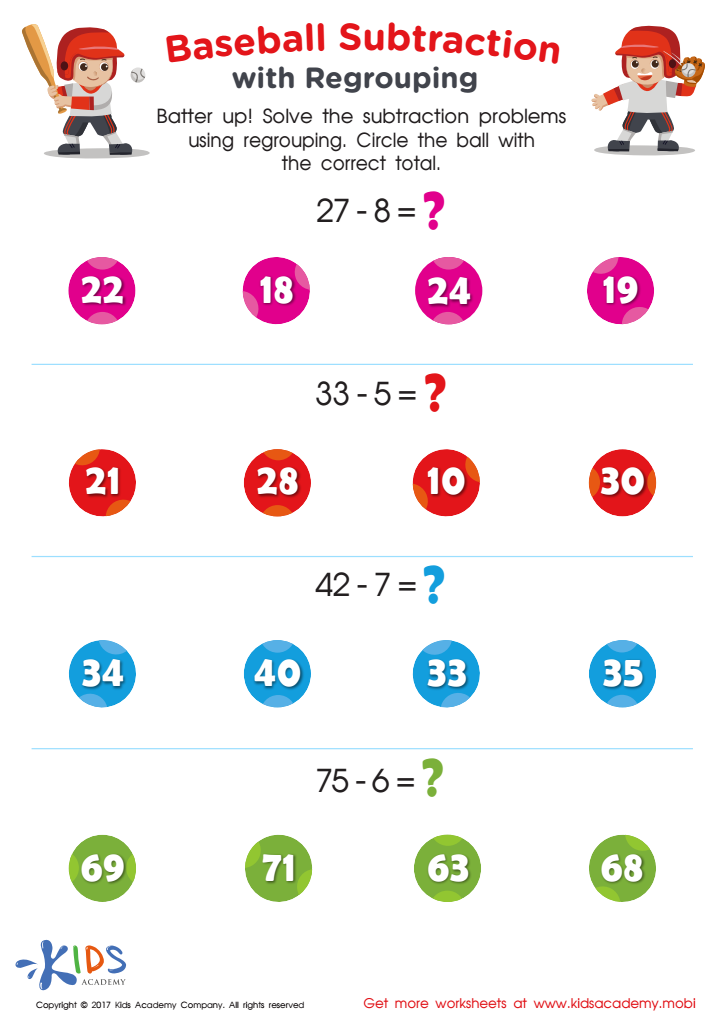

Subtraction With Regrouping for 2nd Grade Worksheet
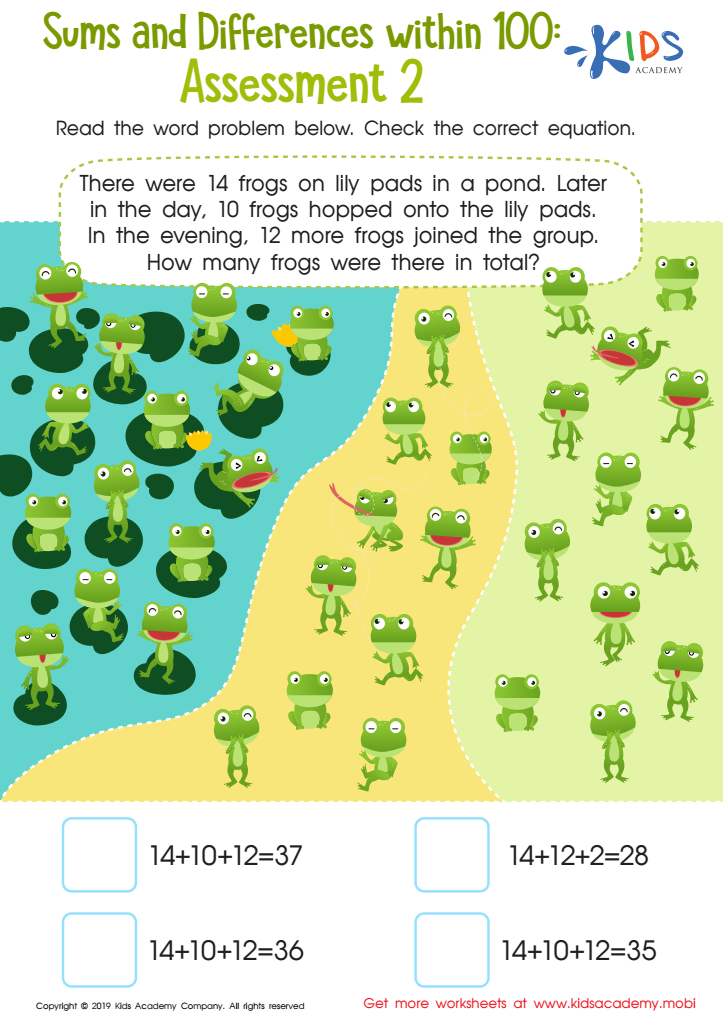

Sums and Differences Within 1 - Assessment 2 Worksheet
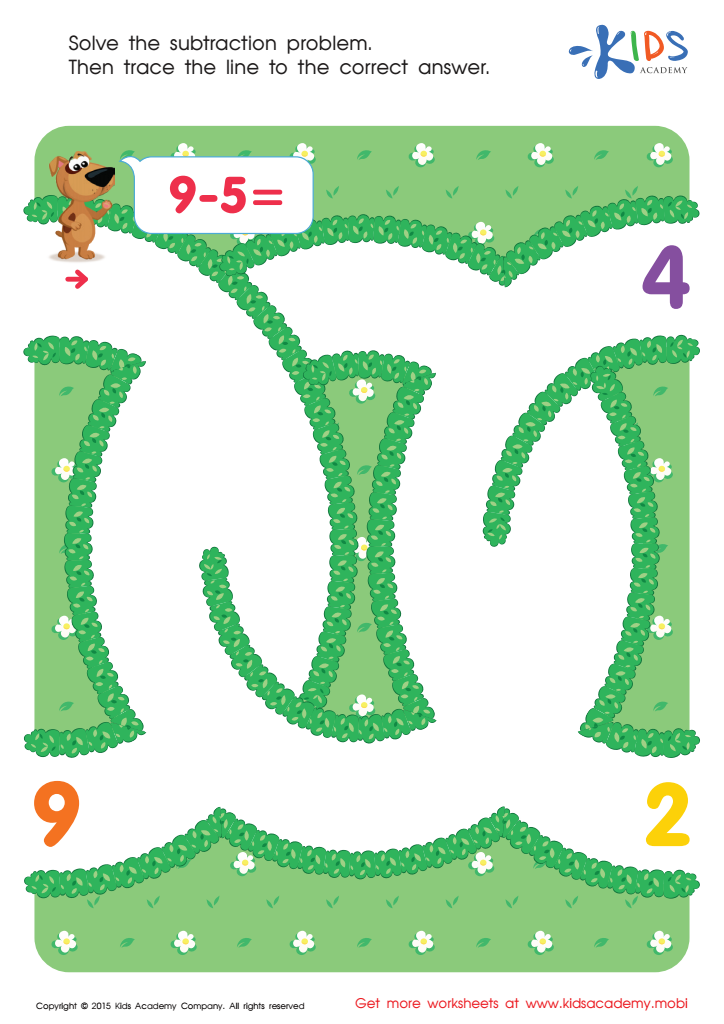

Subtraction Nine And Five Worksheet
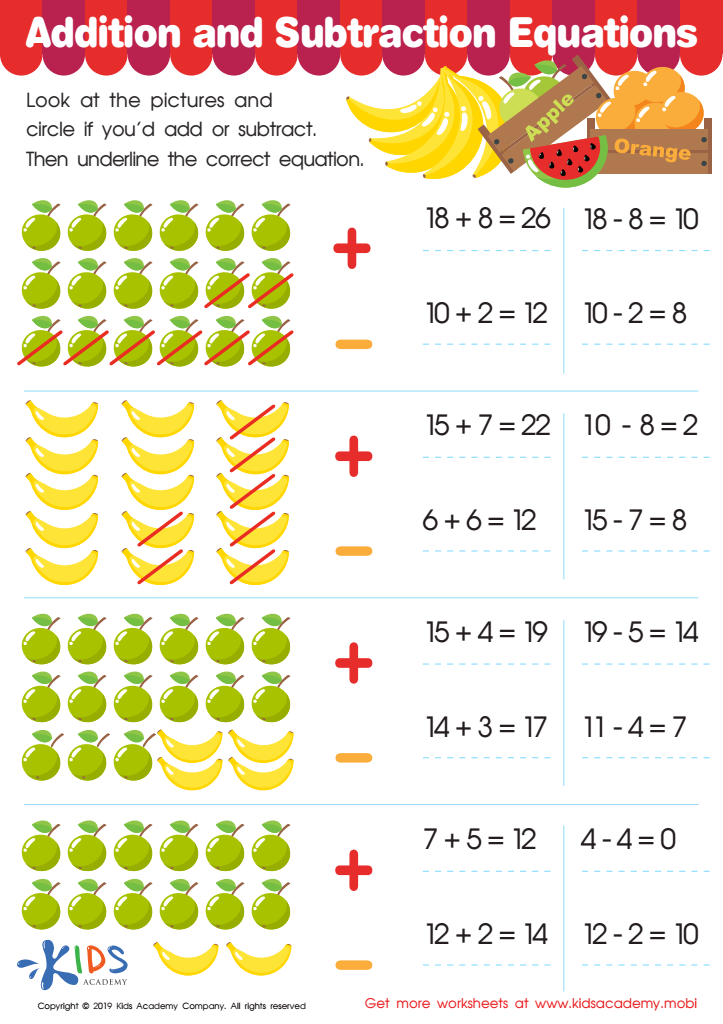

Addition and Subtraction: Equations Worksheet
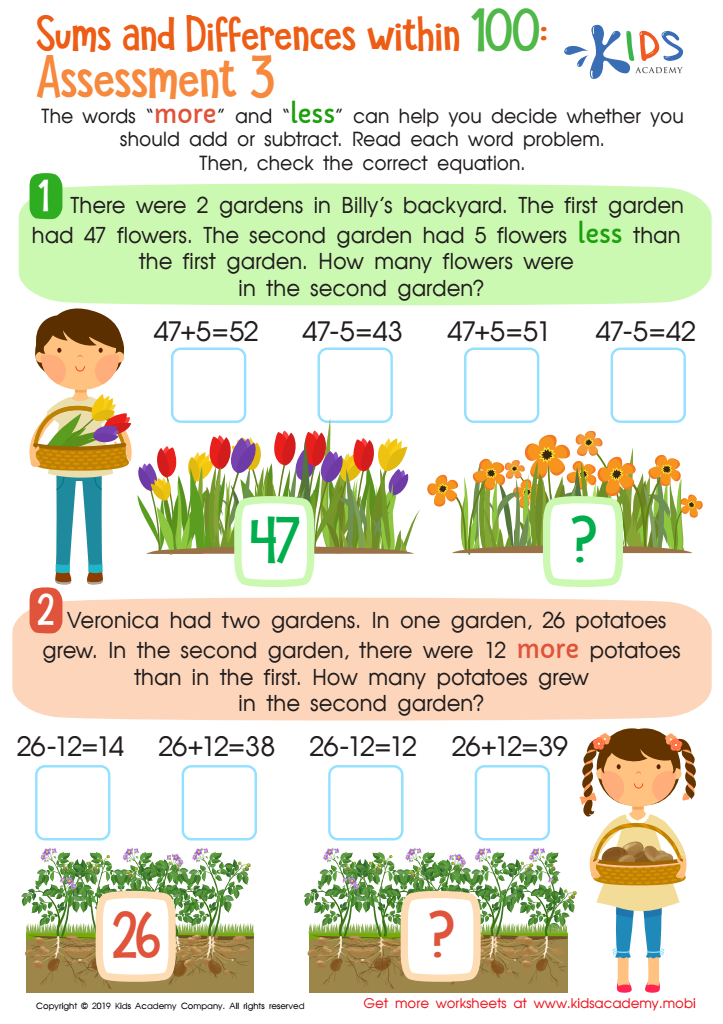

Sums and Differences Within 1 - Assessment 3 Worksheet
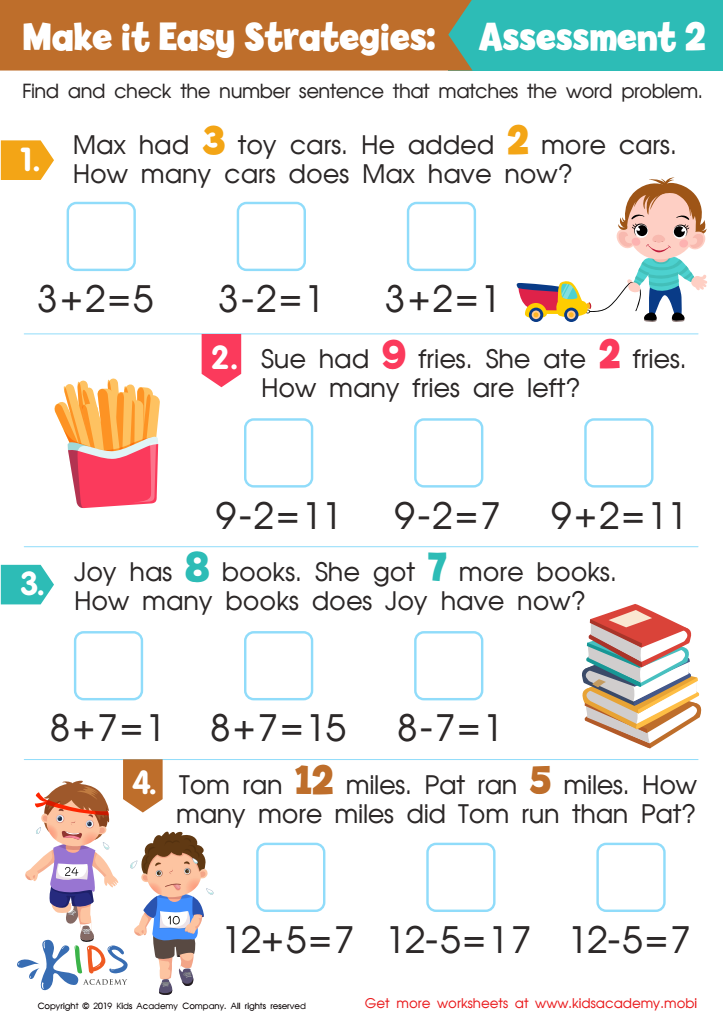

Make it Easy Strategies: Assessment 2 Worksheet
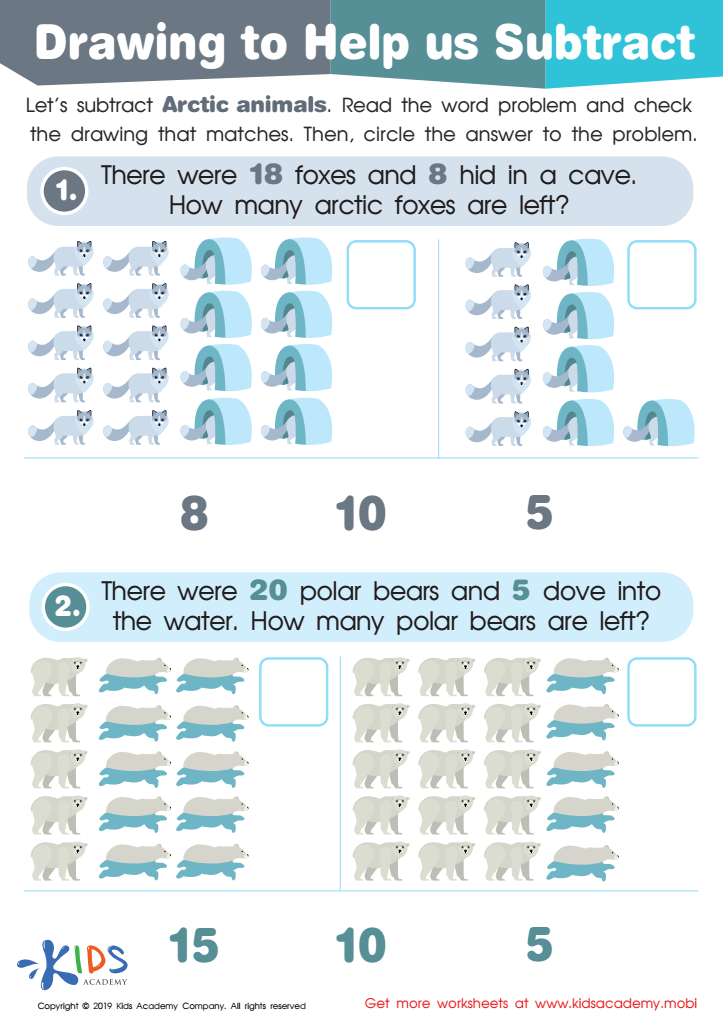

Drawing to Help Us Subtract Worksheet
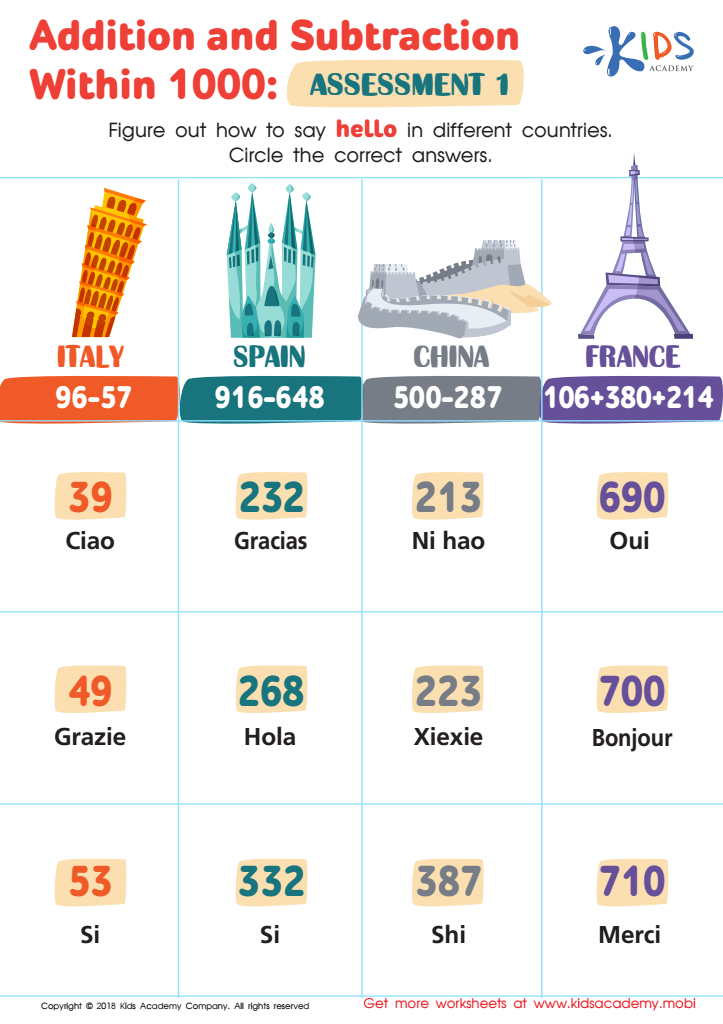

Addition and Subtraction Within 1000: Assessment 1 Worksheet
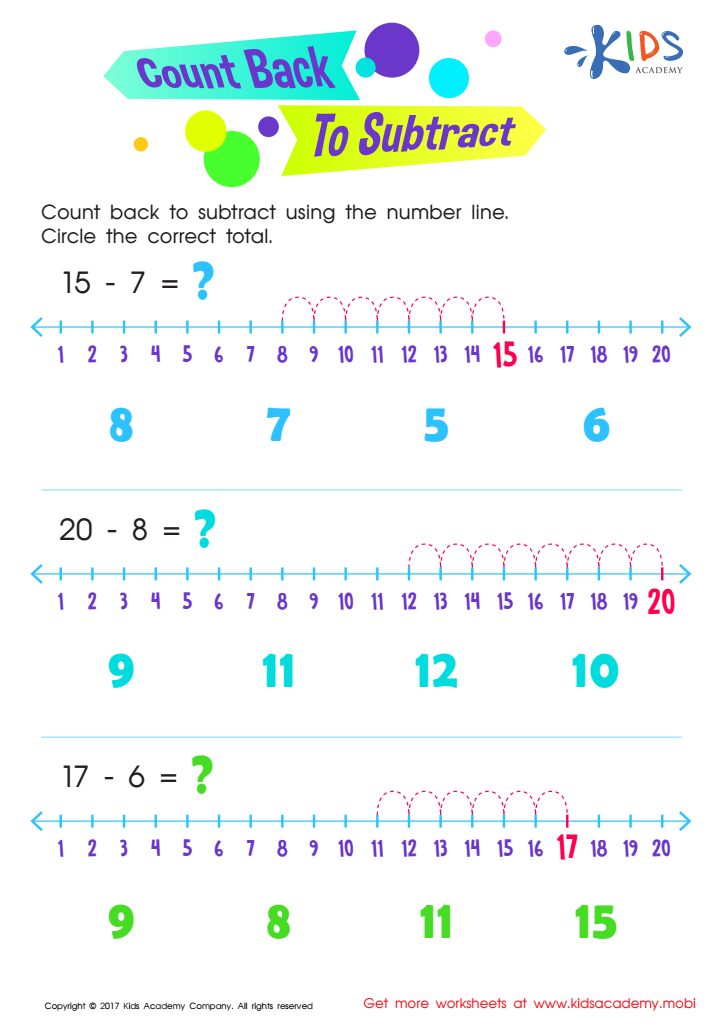

Count Back to Subtract Substraction Worksheet
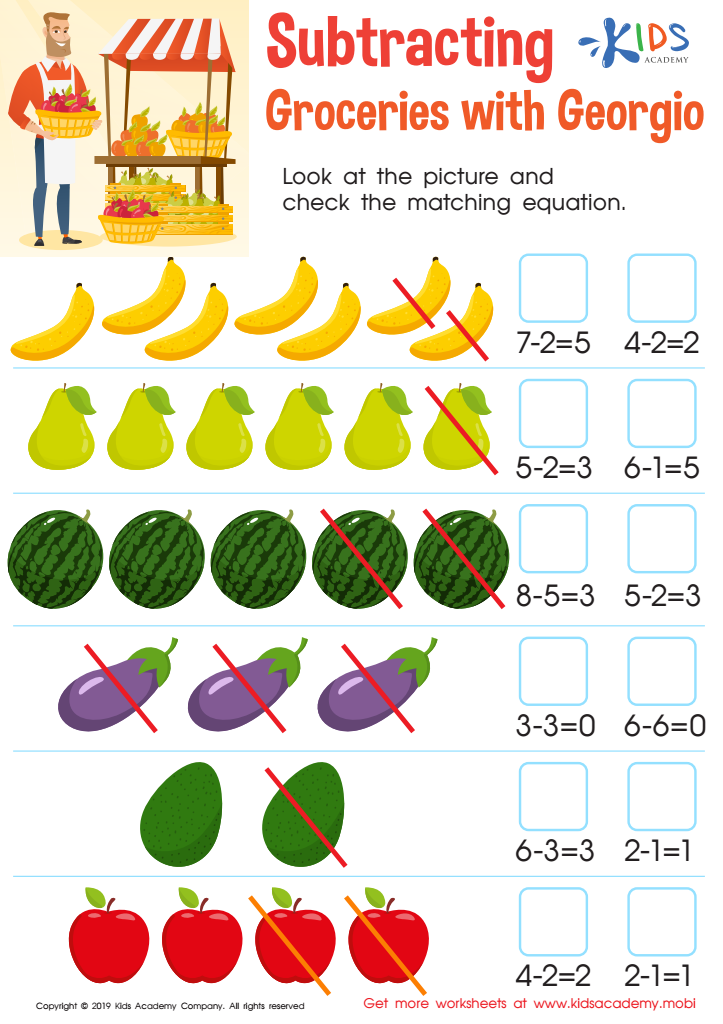

Subtracting: Groceries with Georgio Worksheet
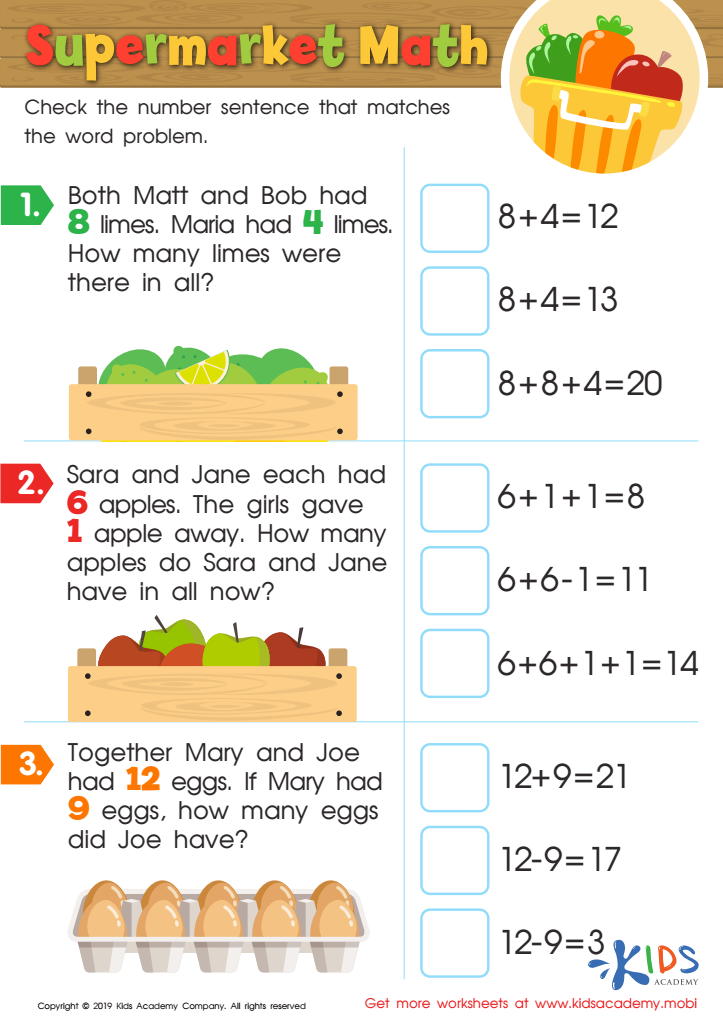

Supermarket Math Worksheet
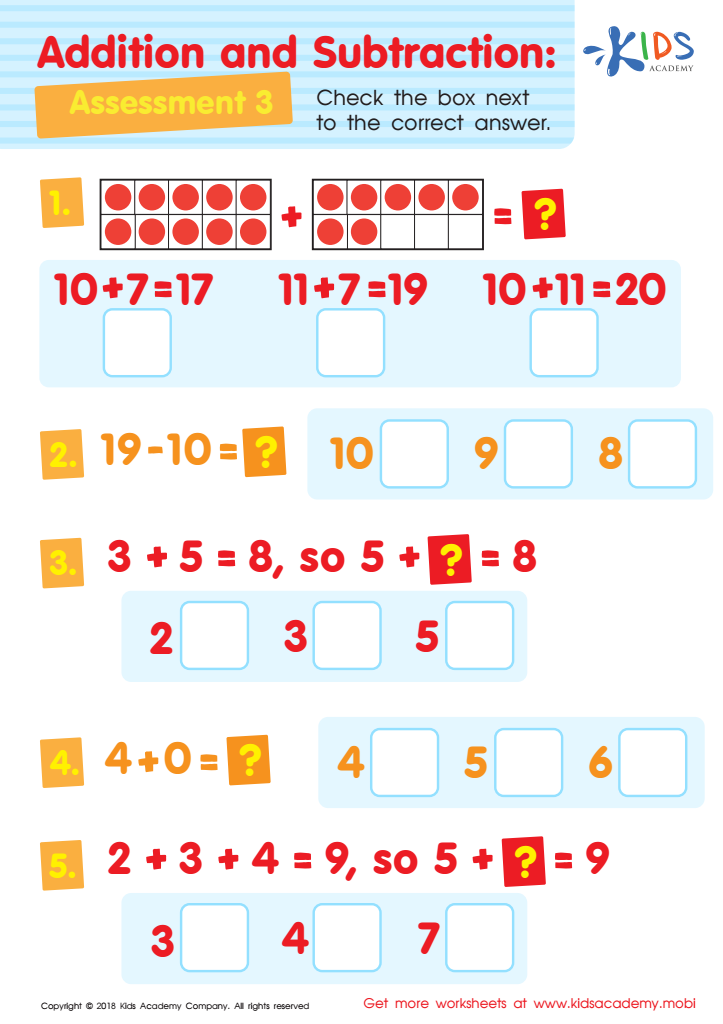

Addition and Subtraction Assessment 3 Worksheet
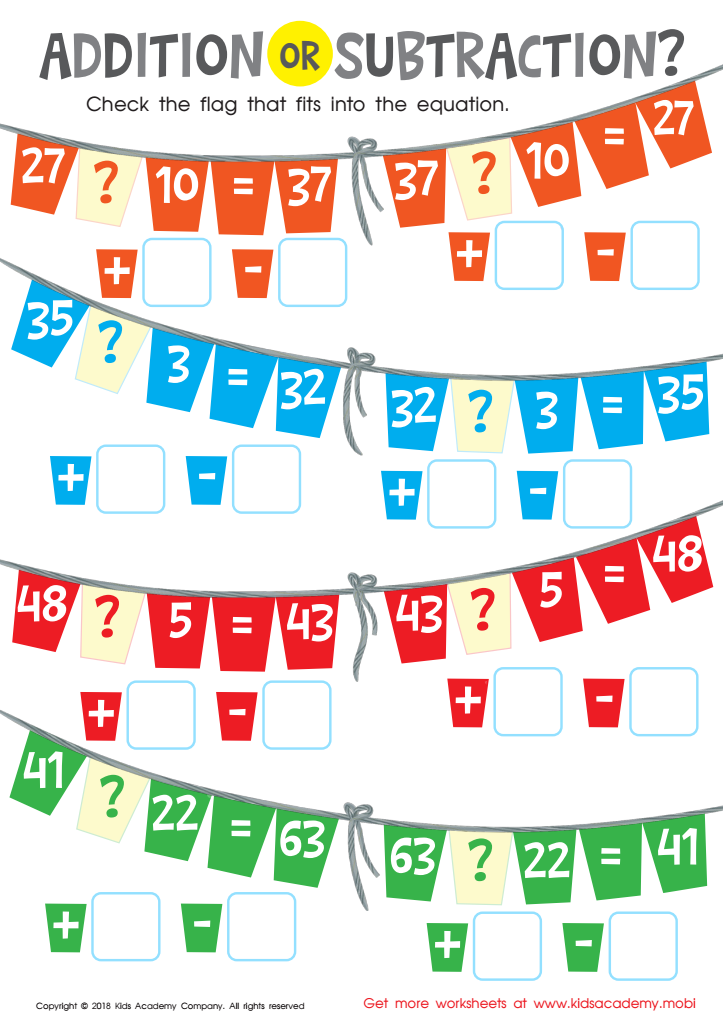

Addition or Subtraction? Worksheet
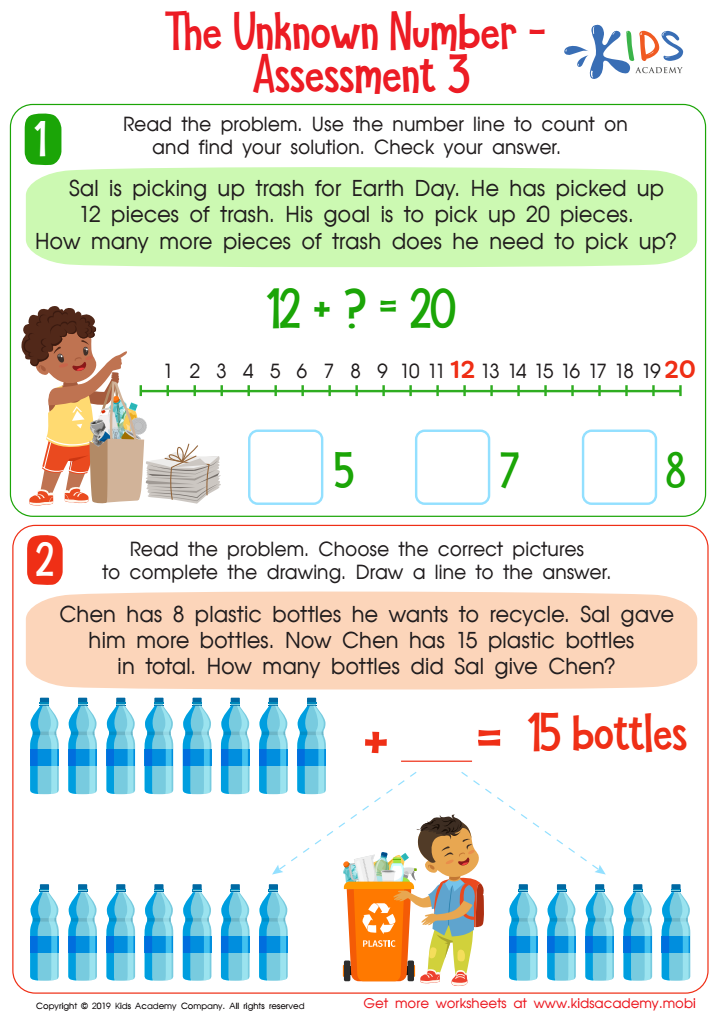

The Unknown Number - Assessment 3 Worksheet
Parents and teachers should care about developing subtraction skills, as well as addition skills, in children ages 5-9 because these fundamental abilities form the building blocks for future mathematical learning and everyday problem-solving. Subtraction is more than just taking away; it teaches children to think critically, recognize patterns, and solve problems efficiently. Early confidence and proficiency in both addition and subtraction allow children to approach more complex math concepts with greater ease, such as multiplication, division, fractions, and beyond.
Introducing addition and subtraction at a young age helps to build a solid foundation in arithmetic, necessary not only in academics but in day-to-day activities like determining change, measuring ingredients for cooking, managing time, and understanding sports scores. Strong skills in these areas lead to better performance in school and a greater likelihood of enjoying math-related activities, which can influence career choices in STEM (Science, Technology, Engineering, Mathematics).
Moreover, acquiring these math skills bolsters cognitive development by strengthening parts of the brain related to logical reasoning, attention, and memory. Thus, by prioritizing the mastery of subtraction and addition, parents and teachers empower children with critical life skills, foster a positive attitude towards learning, and contribute significantly to their overall intellectual growth.
 Assign to My Students
Assign to My Students
